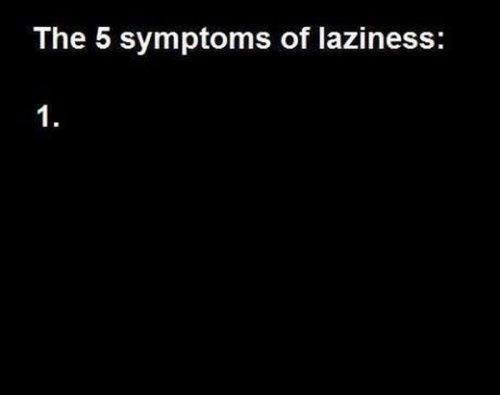Went up into the hills yesterday with a friend of mine, to go hiking and make some far away inanimate objects dance around, by way of burning gunpowder. Great fun. Turns out, there’s a big bright round thing up in the sky and that might have something to do with why there are shadows and stuff. As we were walking along chit-chatting about this and that, we hit on the observation that some of the Internet-arguing people, the left-wingers debating non-debatable things endlessly under cutesy pseudonyms, flinging accusations around, moving goalposts, engaging all sorts of nonsense hyperbole and logical fallacies — they often act like this whole thing is, for them, some sort of a gig. They show all the surface-level passion of a car salesman in a teevee commercial. And I think you know what I mean by that: He acts more animated in delivering his message than a “true believer” would show in delivering his — you can tell he’s getting paid, or hoping to get paid.
Amateurs behave differently. They at least consider good, hard evidence that might upset their views. If someone is really and truly concerned about gun violence killing people, and their proffered solution is gun control, they may not ultimately accept or approve of the clear and obvious rebuttal, “Oh, like Chicago?” But that should at least slow them down a bit. My friend was getting frustrated because he was able to recall when the liberals put up bad citations, he had the citation of some other work that clearly proved the other one was faulty, fraudulent, a study made in bad faith, or some such; and, a little later in the comment thread, the lib would put up the same link all over again, as if he hadn’t dealt with that, like the earlier exchange never happened. Such frustrating behavior might very well be the work of an amateur, but it doesn’t seem likely. It certainly doesn’t reflect the characteristics of someone who’s truly concerned about the problem being discussed. And, it is exactly what you’d expect out of someone being paid.
We already have people who vote for a living. Could it be we have large number of people who argue on the Internet for a living?
I can recall when that was a very silly question to ask. Nowadays, there’s been a shift, I think, and we need to seriously consider it. Lord knows, it’s gotten much tougher to get a “real” job under Barack Obama, and there is a perceptible increase in strange, weird activities representative of the swelling ranks of people who, ya know, gotta pay the bills somehow. Registering the home phone with donotcall.gov doesn’t seem to do a bit of good anymore, you just get the same dinnertime phone calls from companies conducting “surveys.” I’ve occasionally been tempted to ask the person on the other end what the terms of their employment are. Truth be told though, that conversation so rarely happens because when I take the time to pick up the handset and say hello, and hear some machine whirring away or clicking or whatever to connect me to some other human who couldn’t manage to actually dial me, I hang up immediately. It’s a great feeling. But it would be better to skip the whole stupid exercise.
I digress, though.
Are these teeming multitudes of “gotta pay the bills somehow” people being recruited by liberal activist organizations to argue on the Internet, hmmmm. I haven’t seen anything that would create an actual problem for the theory. And for the things already seen, it’s a bit tough to come up with some alternative explanations. The Internet-arguing lefty says, here is a study that says X; my buddy says, here is the study that proves your study is a sham; a dozen comments go by, over the next day or two, and the lefty puts up here-is-the-study-that-says-X all over again like the earlier exchange never took place. Frustrating, maddening, and downright weird. If it isn’t paid trolling, it looks like brain damage.
One alternative explanation has the virtue of being simpler. Simple explanations are valuable. They deserve our attention, and maybe they even merit a friendly bias. The simpler explanation is the one we have always been assuming: People who are passionate about something, just don’t listen very well.
By way of explanation, and perhaps making good use of the earlier digression: I recall a certain older male relative who received one of these phone calls from a real estate “firm” of questionable repute, who called him up and got him all excited about a house-flipping opportunity out in the crumbling suburbs of Detroit. There followed a flurry of hasty long-distance family-conference, during which time my brother and I endeavored to shake him from this. Boy, was it ever tough. My brother then took an interesting tack on the whole thing, conceding the point that going into house flipping was the RIGHT thing to do, since the senior relative wanted to do it so badly, but then outlining the steps that should be followed if this is to be done right. The oldster, surprisingly, conceded back that this plan made all sorts of good sense. But then continued to chatter away excitedly about the shysters who called him.
This intrigued me as much as it perplexed me. I spoke to him about it some more and directly inquired: Why is it, exactly, that we’re hoping for good results from following a bad process? Doesn’t it make better sense to hope for good results from a good process?
That stopped him, and made him think. For a moment or two.
Then, he continued to chatter away excitedly about the shysters. Some more.
This is Confirmation Bias.
A series of experiments in the 1960s suggested that people are biased toward confirming their existing beliefs. Later work re-interpreted these results as a tendency to test ideas in a one-sided way, focusing on one possibility and ignoring alternatives. In certain situations, this tendency can bias people’s conclusions. Explanations for the observed biases include wishful thinking and the limited human capacity to process information. Another explanation is that people show confirmation bias because they are weighing up the costs of being wrong, rather than investigating in a neutral, scientific way.
Confirmation biases contribute to overconfidence in personal beliefs and can maintain or strengthen beliefs in the face of contrary evidence. Poor decisions due to these biases have been found in political and organizational contexts.
:
Experiments have found repeatedly that people tend to test hypotheses in a one-sided way, by searching for evidence consistent with their current hypothesis. Rather than searching through all the relevant evidence, they phrase questions to receive an affirmative answer that supports their hypothesis. They look for the consequences that they would expect if their hypothesis were true, rather than what would happen if it were false. For example, someone using yes/no questions to find a number he or she suspects to be the number 3 might ask, “Is it an odd number?” People prefer this type of question, called a “positive test”, even when a negative test such as “Is it an even number?” would yield the exact same information.
I have noticed something over the years about confirmation bias, that might go a long way toward explaining the Internet behavior. Confirmation bias has a tendency to be LOUD. Ever notice that?
People who fall for this and start to engage the poor decision-making that results from it, seem to be a lot more interested in the confirmation than in the bias. They don’t want to do it all by themselves. They want to socialize their poor decisions. From watching how all this goes down, I’ve often formed the impression that there is real, and perhaps measurable, confirming going on here. The subject is perhaps 60% certain of the proposition before talking about it with others, and 80% to 90% certain of it afterward, even if no actual supporting evidence has been provided. For examples of this, I don’t have to think back too far or recall too much: As I drove home from the excursion, I passed one of those idiotic atheism billboards that said “‘Tis the season to apply reason” or some such. There. That right there is what I’m describing. Proselytizing a lack of belief. What’s it cost to rent a billboard? How does this emerge as a good decision, even if you have all the money in the world? Aren’t your resources still limited? Why do this? Seriously. Stupid.
A genuine and respectable atheist wouldn’t give a fig.
Humans have a way of welcoming confirmation bias, of working hard to make it happen to us. We all have an inclination, I think, to treat our own endorsements of something before audiences of familiars or strangers, as if it’s hard evidence. Blogging provides an enormous temptation toward doing that, by the very nature of the exercise. You have to work hard, with pretty much every paragraph, asking yourself “Waitaminnit, how do I know this is true?” The answer that comes easiest — few will admit it, but this is universally true — is: It must be true, I just wrote it down, and heck the whole Internet can see it! That, obviously, is faulty thinking right there. But you have to work to stay out of it, to not be sucked in.
No one is immune. And of course, it’s always fun and entertaining to point it out in the other side. But no greater harm in doing it, contrasted with not doing it. These things should be corrected. “Sayin’ so don’t make it so,” when someone just talks out their ass about the Tea Party being full of trigger-happy weirdos or something similarly slanderous and uninformed.
We’re all here by accident and there is no God? Sayin’ so don’t make it so.
The point to all this is: These people — assuming they are NOT being paid — are engaging in an ancient social pastime. They seem to inwardly know that their comments are not intended to observe the state of an object, quite so much as to change the state of an object. This is learned behavior from early on. You see it in classrooms of little kids arriving at a consensus about something; If some of the more charismatic ones happen to have their minds made up earlier than the majority, for whatever reason, they are very often heard using their “outside voices” inside. They are building a skill, which some of us are missing I notice. The skill of deciding and measuring things, that can be decided or measured only by way of including the human element.
Some everyday examples of this:
- Where this emerging consensus is going;
- Whether the decor in this room makes it delightful/cheerful;
- Whether a newly discovered political figure has “charisma,” or as it is commonly phrased, “is the real deal”;
- Whether a baby is beautiful, or ugly;
- Whether the dance performance was worth a 10.0;
- How to interpret an ambiguously worded test question, like “one hundred and one over five eighths”;
- He’s a jerk (pass-fail assessment);
- …but he’s an even bigger one (relative assessment);
- He does, or doesn’t, “need” that money he has;
- Joe Biden won that debate.
You go see a movie with a group of people, and one among you might say: “That actor really nailed the part, didn’t he?” The truth no one wants to acknowledge is that the “didn’t he?” is more important than the preceding statement. This is someone welcoming, on top of practicing, the exercise of confirmation bias. Actively seeking to have the bias confirmed. The question implicitly acknowledges the possibility that the actor didn’t really do that well. It grudgingly allows for this, in the sense that it seeks to eliminate it. There’s no point trying to eliminate something that isn’t actually there.
You can see the conflict, everyday, if you only take the time to look. As fewer and fewer people think Obama is a good president, the bullying-narrative that He is the greatest ever, has become more forceful. More intense. Any day now the healthcare.gov site is going to be working wonderfully…it’s said over and over, although there’s no evidence supporting this at all.
Matters to be decided in that bulleted-list up above, share common characteristics and these are worth some serious thought. They are testable, it could be said; it could even be said the tests are reproducible. If a hundred randomly selected people all agree that a room is tastefully and pleasingly decorated or that a baby is beautiful, you can go pick out an additional two or three participants and they’ll probably agree. What distinguishes them from the harder and firmer stuff, like “what is 2 + 2?” is that the human element is required.
Some of these squish-ball questions work very hard at masquerading as something objectively measurable. “Mitt Romney doesn’t need all that money” comes off sounding like an assessment has been made of what the Romney family “needs,” and either the income or the net worth has been mechanically and coldly assessed at something far above this. That is the implied sales job. We all know that is not the case, and that is not what is being expressed.
I have occasionally commented, to the surprise of some people I know, that if Autism was as trendy when I was a kid as it is now, I’d be diagnosed for sure. I don’t follow it up with a “wouldn’t I?” because there’s no confirmation bias taking place there, you’ll have to take my word for that. I’m absolutely sure of it. Of all the things that are different between a middle-age Morgan and a school-age Morgan, one thing that has remained absolutely consistent is my poor performance on written tests, even on tests confined to subjects on which my conceptual understanding is complete and strong. Even achieving total command, best I can do is about 70% at the end of it because I keep running into idiotic stupid questions like this one…and, responding much the same way as this so-called autistic kid:

You see, when the biggest part of answering the question is resolving the conundrum of “What did the test designer really mean to say?” — well, ya know, that’s a problem.
But we have a much bigger problem than that, in our society. We are conflating these squishy questions with firmer questions. We are essentially intermixing questions that cannot be resolved…read that as, cannot be resolved without including the human element, questions that require the engagement of confirmation bias in order to be answered at all…with questions that rely on objectively measurable truth. We are making an everyday habit out of mistaking the former for the latter.
It’s only impacting those of us who never learned how to socialize our poorest decisions, never learned how to acquire and ingrain a sense of certainty about them. A sense of certainty that, it should be noted, never belonged there in the first place. Only we notice it, because only we have any reason to. And we’re not only being outvoted on this matter. We’re being diagnosed with learning disabilities that don’t actually exist, at least, not in the way they’re being portrayed.
The loud majority is fortunate…I guess they are. They get to run around saying risible, silly things like “the science is settled on climate change.” What they are doing is something they’ve been doing for a very long time, since back in those school days where, when the group is asked a question…the heads swivel left, then the heads swivel right. Everyone knows whether or not to put their hands up, after they’ve had a couple moments to check and see what everyone else is doing. They are affecting the state of an object while deluding themselves, and others, into thinking they’re just reading it. That object is ethereal and omnipresent — everywhere, surrounding us all, binding us together. It’s almost mystic. And they’ve managed to achieve some weird symbiotic relationship with it. “The actor really nailed the part, didn’t he?” feeds this ethereal object surrounding us and binding us together. They tell the ether what to think. And the ether rewards them by confirming their certainty, and in so doing, sustaining and nourishing them.
After a lifetime on the outside looking in, I’m still confused about whether I should feel jealous or not.
Their answers are always “right.” Until they’re not…and then, as we see in some examples of group-thinking error, like the “Obama’s gonna fix our health care” thing for example…they become not only estranged from reality, but resentful of it as well. The traumatic collision between theory and reality is airbrushed out of the recent history; it never happened. Anybody who brings it up is demoted to pariah status. Needs to leave. It is “futile to discuss” the matter with such people………….isn’t it?
Cross-posted at Rotten Chestnuts and Right Wing News.











 Why, because it would cause a panic and people would get hurt. Did Phil Robertson’s speech meet this criteria set forth by the Supreme Court? No, it did not. The only people who panicked were the A&E executives that decided to pull Phil from the show.
Why, because it would cause a panic and people would get hurt. Did Phil Robertson’s speech meet this criteria set forth by the Supreme Court? No, it did not. The only people who panicked were the A&E executives that decided to pull Phil from the show.

 I suppose there is a Tier Seven for whoever didn’t like the gold bikini.
I suppose there is a Tier Seven for whoever didn’t like the gold bikini.